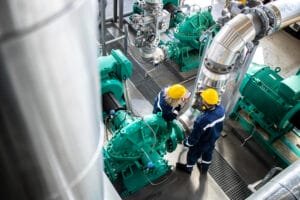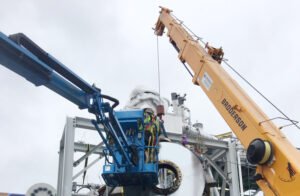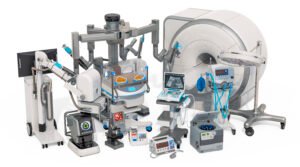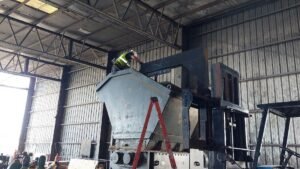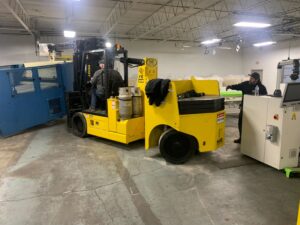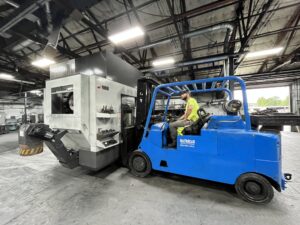Custom metal fabrication is a cornerstone of the manufacturing and construction sectors. The ability to shape and manipulate metal into specific designs and components has always been a critical aspect of many industries. As the global landscape evolves, so too do the needs and expectations of the metal fabrication industry. In this article, we’ll explore the current trends in custom metal fabrication and how the industry is adapting to meet the changing demands of the modern world.
Digitalization and CAD/CAM Integration
One of the most prominent trends in custom metal fabrication is the integration of computer-aided design (CAD) and computer-aided manufacturing (CAM) technologies. These digital tools have revolutionized the way custom metal components are designed and produced. CAD software enables engineers and designers to create precise, intricate 3D models, while CAM software translates these models into machine instructions for automated fabrication.
This integration significantly reduces the margin for error, increases efficiency, and enhances the overall quality of custom metal products. With CAD/CAM, manufacturers can more easily adapt to specific design requirements, making it easier to meet unique customer demands.
Sustainable Practices
Sustainability is a growing concern across all industries, and custom metal fabrication is no exception. The industry is increasingly focusing on sustainable practices, including the use of recycled materials, waste reduction, and energy-efficient processes.
One notable development is the shift towards waterjet cutting and laser cutting, which are more environmentally friendly and precise alternatives to traditional cutting methods. Additionally, many custom metal fabrication companies are investing in energy-efficient equipment and adopting greener manufacturing processes to reduce their environmental footprint.
Advanced Materials and Alloys
The demand for custom metal products with improved strength, durability, and corrosion resistance has led to the use of advanced materials and alloys. Stainless steel, aluminum, titanium, and various high-strength alloys are becoming more popular due to their superior properties. These materials provide longevity and better performance, making them ideal for applications in aerospace, automotive, and construction.
Moreover, the development of new materials with improved characteristics continues to drive innovation in the industry. This trend is pushing custom metal fabricators to adapt and expand their expertise in working with a broader range of materials.
Additive Manufacturing (3D Printing)
While traditional subtractive manufacturing processes (cutting, bending, welding) have long dominated the industry, additive manufacturing, also known as 3D printing, is making significant inroads. This technology allows for intricate and complex structures to be created with precision. While it’s not yet a replacement for all custom metal fabrication processes, it is increasingly used for prototyping and producing complex parts.
The advantages of 3D printing in metal fabrication include reduced waste, shorter lead times, and the ability to create highly customized, one-of-a-kind components. As 3D printing technology continues to advance, it’s expected to play a more substantial role in the industry.
Automation and Robotics
The integration of automation and robotics in custom metal fabrication is streamlining processes, reducing labor costs, and increasing productivity. Automated systems are used for tasks such as material handling, welding, and quality control.
Robotic welding, in particular, is gaining traction due to its precision and efficiency. Robots can work continuously and consistently, which is especially beneficial in large-scale production or when working on intricate and repetitive tasks.
Precision and Tolerance Standards
The need for tight tolerances and high precision has grown in several industries, including aerospace, automotive, and medical devices. Custom metal fabricators are investing in advanced machining equipment and quality control systems to meet these increasingly stringent requirements.
High-precision machining techniques, such as CNC (computer numerical control) machining, are becoming standard in the industry. These techniques ensure that custom metal components meet precise dimensional specifications, which is crucial in applications where safety, reliability, and performance are paramount.
Customization and Personalization
In the modern market, customization and personalization are highly valued. Customers are looking for unique solutions tailored to their specific needs. Custom metal fabricators are adapting by providing not only off-the-shelf products but also highly customized solutions.
For example, architectural metalwork is increasingly tailored to the unique designs and preferences of building owners and architects. This trend also extends to the consumer goods industry, where custom metal fabrication is used to create personalized products, from custom automotive parts to unique home décor.
Globalization and Supply Chain Optimization
The metal fabrication industry has become more globalized, with companies collaborating with partners and suppliers from around the world. This globalization has led to supply chain optimization and the adoption of just-in-time manufacturing practices.
By optimizing the supply chain, custom metal fabricators can reduce lead times, minimize inventory costs, and better respond to fluctuating customer demands. The ability to access a global network of suppliers also allows them to source materials and components at competitive prices.
Industry 4.0 and Smart Manufacturing
Industry 4.0, characterized by the integration of digital technologies, the Internet of Things (IoT), and data analytics, is transforming the custom metal fabrication industry. This shift towards smart manufacturing enables real-time monitoring, predictive maintenance, and data-driven decision-making.
By harnessing the power of data and automation, custom metal fabricators can enhance efficiency, reduce downtime, and improve overall quality. This trend is expected to become more prevalent as more companies embrace Industry 4.0 principles.
Safety and Compliance
As the custom metal fabrication industry continues to evolve, safety and compliance regulations are becoming increasingly strict. Companies are placing a strong emphasis on safety protocols and compliance with industry standards.
Adhering to these standards not only ensures the safety of workers but also helps in avoiding costly fines and legal issues. To stay competitive and maintain a good reputation, custom metal fabrication companies are investing in safety training, equipment, and compliance management systems.
Conclusion
Custom metal fabrication is a dynamic and ever-evolving industry. As technology, materials, and customer demands continue to change, adaptability and innovation are key to staying competitive. The trends discussed in this article showcase the industry’s commitment to embracing new technologies, adopting sustainable practices, and delivering highly customized solutions to meet the changing needs of the modern world. By staying at the forefront of these trends, custom metal fabrication companies can continue to provide high-quality, cutting-edge products and services to their clients.





